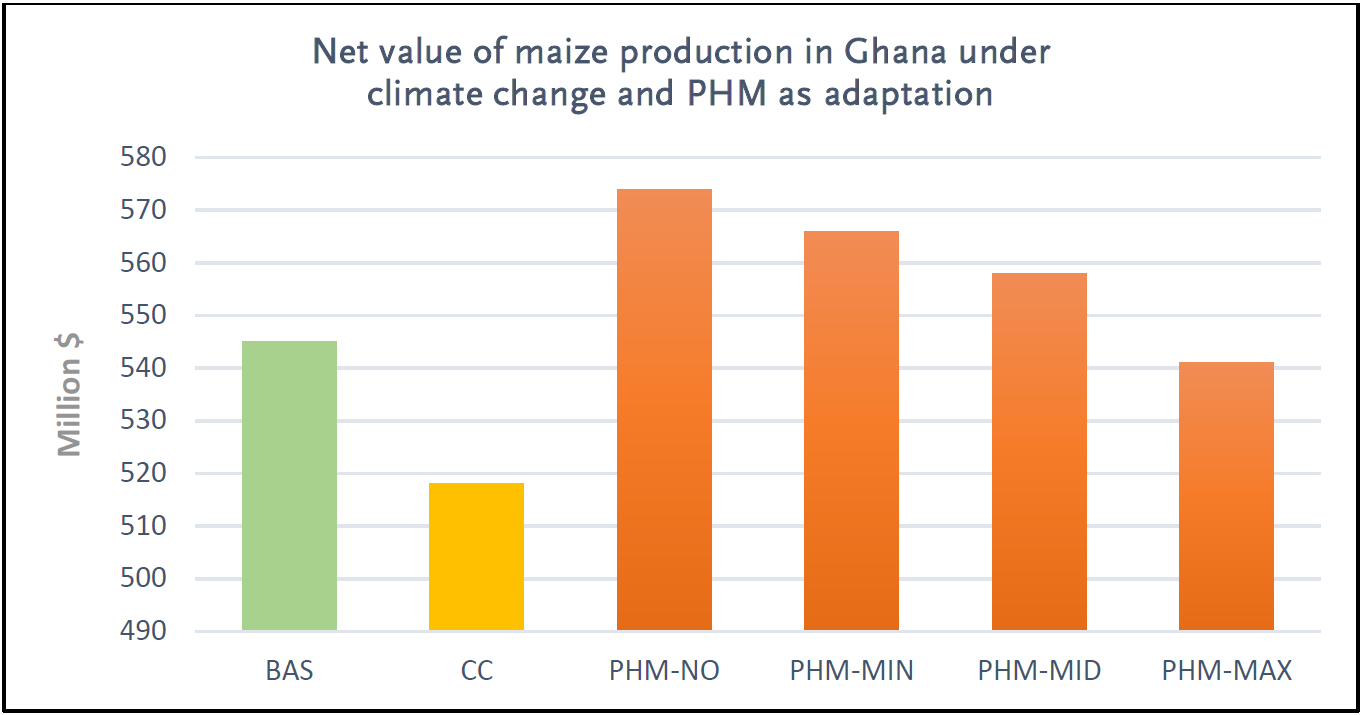Effective post-harvest management is crucial to avoid food loss along the value chain. Investments in scaling technologies for improved post-harvest management have high potential for reducing crop losses, also and especially under climate change. With climate change altering growing and harvesting seasons, post-harvest management is important to cope with increased uncertainty. It is a risk-reducing strategy that lowers the vulnerability of crop production to climate impacts. Next to main staple crops such as maize and beans, post-harvest loss (PHL) of easily perishable horticulture crops could be avoided. Numerous effective and low-cost technologies exist that can prevent or reduce PHL.
Ghana’s NDC Implementation and Investment plan lists post-harvest management as a priority for adapting agriculture to climate change, with interviews confirming wide-spread interest in such strategies. A concrete post-harvest technology with promising results in the context of maize production in Ghana have been so-called PICS bags (Purdue Improved Cowpea Storage): simple and affordable yet effective hermetic storage bags originally developed for storing cowpea. Implementation of improved post-harvest management strategies can be recommended across the country as a low-hanging fruit, since better post-harvest management can increase agricultural production considerably.
Furthermore, as the economic analysis confirmed, most post-harvest management measures are rather low cost interventions, with most intervention types being “no regret” strategies because even in the absence of climate change, the improvement in crop handling will lead to lower crop losses and higher agricultural output, being economically sensible. Figure 1 shows the net value of maize production under different post-harvest management scenarios, compared to scenarios of maize production without adaptation – both with (CC) and without climate change (BAS). Except for the highest cost scenario (MAX), all other PHM scenarios do not only make up for the maize losses under climate change, but are also able to surpass maize production under the baseline scenario (without climate change and without adaptation). This shows their high economic viability.

Overall, post-harvest management strategies have considerable potential in Ghana and, being an often low-cost and no-regret strategy, can be recommended for wider implementation.


